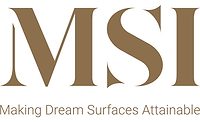
Graziano Verdi, president and CEO of the Fiandre
Group, calls the Active Clean Air & Antibacterial Ceramic technology "an important step for his company and the entire
flooring industry in contributing to sustainable architecture."
At an event held June 30 for members of the media and its dealers, Fiandre Architectural Surfaces opened its Chicago showroom and introduced its latest technology: Active Clean Air & Antibacterial Ceramic. The Italian-based company will use the technology to produce photocatalytic porcelain tiles that help to improve the quality of the environment.
Speaking at the grand opening in Chicago, Fiandre Group President and CEO Graziano Verdi called this innovation an important step for his company and the entire flooring industry in contributing to sustainable architecture. The new process infuses the properties of Fiandre’s porcelain tile with photocatalytic technology, he noted.
Photocatalysisis a natural phenomenon that involves light, moisture and a photocatalyst, in this case micrometric particles of titanium dioxide applied to the tile surface. When either natural or artificial light comes in contact with the photocatalyst, a chemical reaction calledoxidationoccurs.
The oxidation process results in three important benefits:
-
Antipollution:
The air is cleaned of harmful organic and inorganic substances. This quality is
particularly important considering how any building exposed to airborne polluting
substances soon begins to deteriorate from pollution. In the presence of
pollutants such as nitrogen oxide, sulphur oxide or carbon monoxide, an
antipollution reaction occurs on the surface of the Active Clean Air &
Antibacterial Ceramic tile, and the pollutants are broken down.
In addition to providing a benefit to the exterior environment, oxidation helps buildings maintain their original appearance over time. Fumes and odors also are destroyed. - Antibacterial: Surfaces are disinfected, eliminating bacteria. In the presence of bacteria, an antibacterial reaction occurs on the surface of the tile. The Tile Council of North America and Centro Ceramico Bologna conducted tests on the resistance of bacteria on the surface of the Active Clean Air & Antibacterial Ceramic tiles, showing how bacteria are eliminated. This quality is useful in environments where hygiene is an essential requirement. Projects that can benefit from this quality include spas, wellness centers, hospitals, hotels, schools and residential applications,
- Self-cleaning: Light, moisture and titanium dioxide make the surface hyperhydrophilic. The self-cleaning activity of Active Clean Air & Antibacterial Ceramic is carried out upon contact with light and with the moisture present in the air. In those conditions, titanium dioxide makes the surface hyperhydrophilic, meaning it has an extremely strong attraction to water. This creates an invisible layer of water that covers the surface of the material, either indoor or outdoor, making it easier to clean.
Besides Verdi, speakers at the Chicago event included StonePeak CEO Rodolfo Panisi and Italian American Chamber of Commerce President Robert Allegrini.





